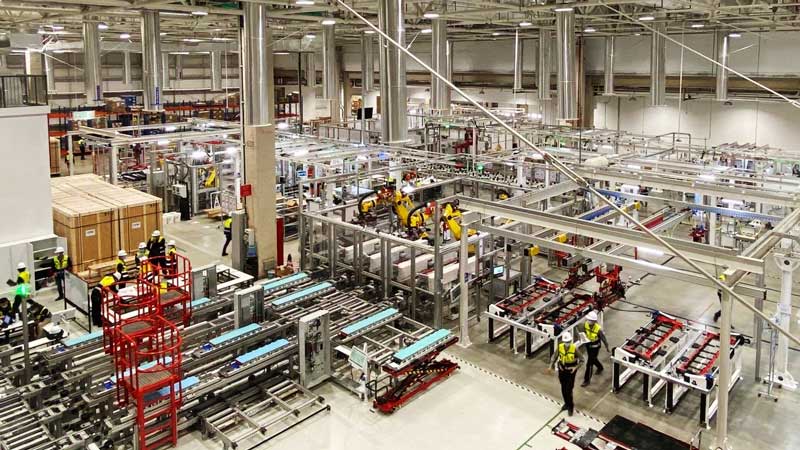Chinese battery manufacturer Contemporary Amperex Technology Co. Limited, more commonly known as CATL, has invested RMB 100 million ($A21 million) to establish a new automotive science and technology company based in Shanghai.
CATL – well known for supplying lithium-iron-phosphate (LFP) battery cells to companies like Tesla and Nio – established the CATL (Shanghai) New Energy Technology company on Tuesday, with registered capital of RMB 100 million, according to Chinese business information platform Qichacha.
Formed back in 2011 and based in the coastal Chinese city of Ningde, CATL is now the world’s largest electric vehicle battery manufacturer and supplies carmakers including Tesla, BMW, Mercedes-Benz, and Nio.
According to power analysts Wood Mackenzie, “CATL is leading the global lithium-ion cell production now, holding 490 GWh of total lithium-ion cell manufacturing capacity. The company is also a top lithium consumer.”
Earlier this year, it was reported that CATL was planning to begin delivering solid-state battery cells with a density of more than 350Wh/kg – starting with near-term delivery of 200Wh/kg or even 230Wh/kg, before ramping up to as much as 350Wh/kg and 400Wh/kg in the long term.
The news followed less than a year after CATL announced that it was able to begin manufacturing electric vehicle batteries that can last for more than a million miles – or more than 1.6-million kilometres.
Around the same time, CATL received a strong seal of approval from the father of the lithium-ion battery, Sir John Goodenough, who said that the advances at CATL’s new 21C laboratory could significantly benefit society:
“As an industry leader in lithium-ion battery technology, advances made by members of the 21C Lab can benefit society significantly,” wrote Goodenough who is currently the chair for the Virginia H. Cockrell Centennial engineering department at the University of Austin, Texas.
“I believe that with the setup of the 21C Lab, CATL can introduce more inventions in battery technology that will allow the world to cut back on our dependence on fossil fuels.”
In late-June, CATL extended its battery supply deal with Tesla until 2025, promising to continue supplying Tesla’s Shanghai gigafactory with its cobalt-free lithium-iron-phosphate cells that are less energy-dense than the NCA cells provided by Panasonic, but which can be regularly charged to 100%.
“The agreement signifies further acknowledgement by Tesla of the product quality and production capability of [our company], and will help strengthen the long-term cooperation relationship between the company and Tesla,” CATL said in the statement.
And just last month, CATL unveiled a new battery technology that runs on sodium, rather than lithium. Though boasting an energy density of only 160Wh/kg – still relatively high, but lower than the CATL’s own LFP battery cells – a sodium-ion battery can charge to 80% in just 15 minutes.
“Sodium-ion technology has long been touted for commercial battery use due to sodium’s low cost and high abundance relative to lithium, and CATL producing large scale sodium-ion batteries shows the technology’s appeal is coming to fruition sooner rather than later,” said Wood Mackenzie research analyst Max Reid.
“The lower energy of the sodium-ion cells suggests that the technology may be more suited for stationary energy storage applications which are less restrictive, while the unveiling of battery packs combining both sodium-ion and lithium-ion cells could point towards compromise in performance for low-cost electric vehicles, with the potential to disrupt the mass market.”
Joshua S. Hill is a Melbourne-based journalist who has been writing about climate change, clean technology, and electric vehicles for over 15 years. He has been reporting on electric vehicles and clean technologies for Renew Economy and The Driven since 2012. His preferred mode of transport is his feet.


